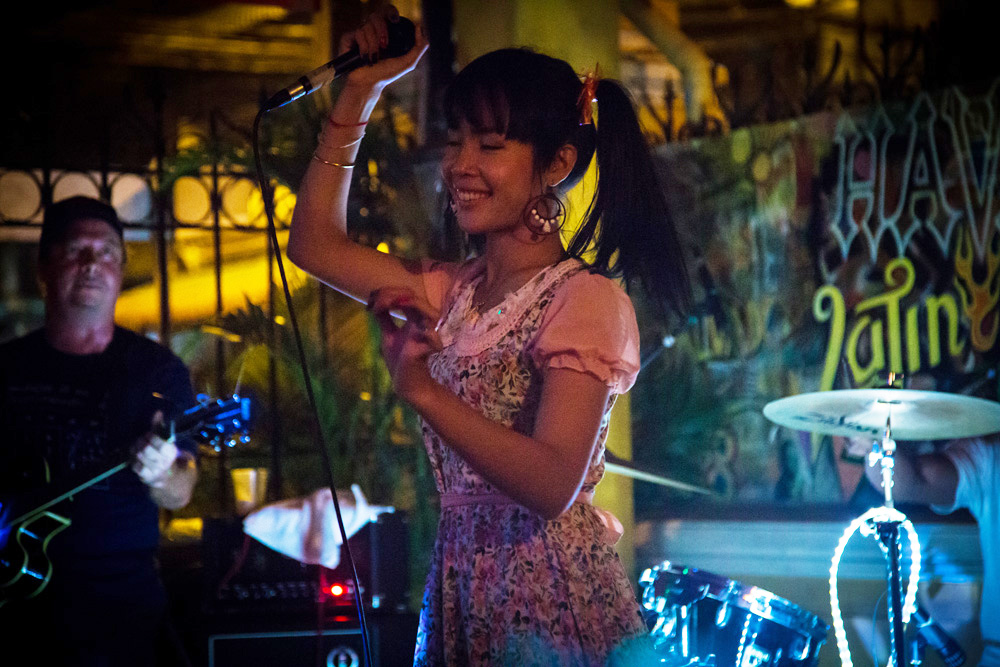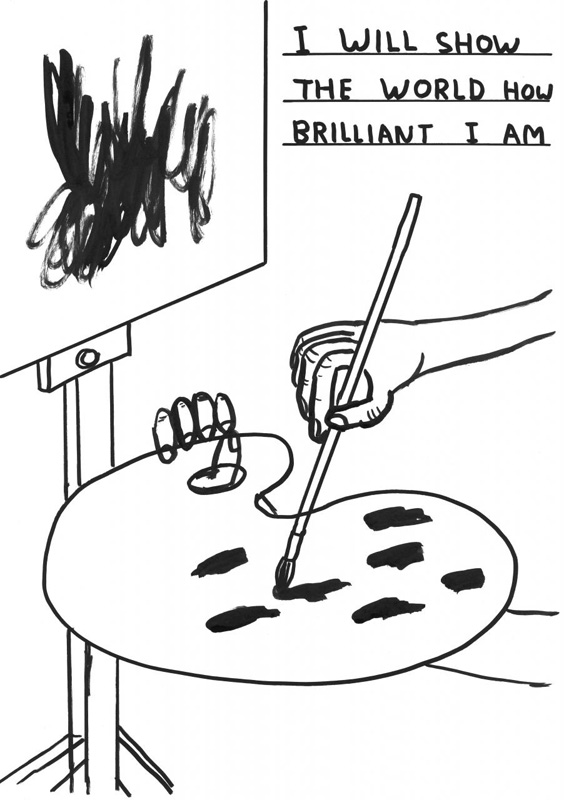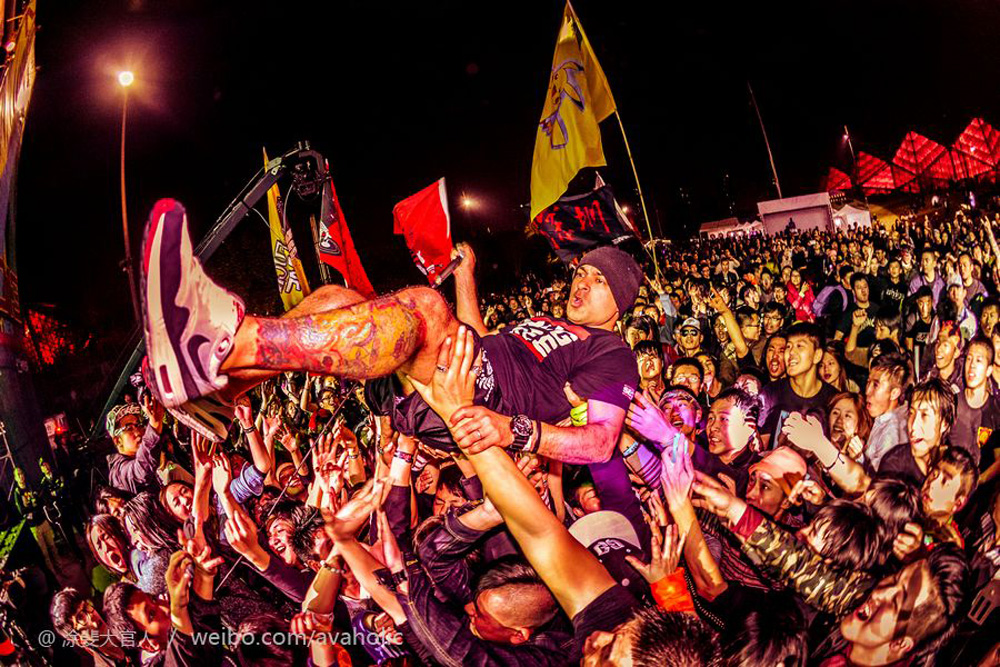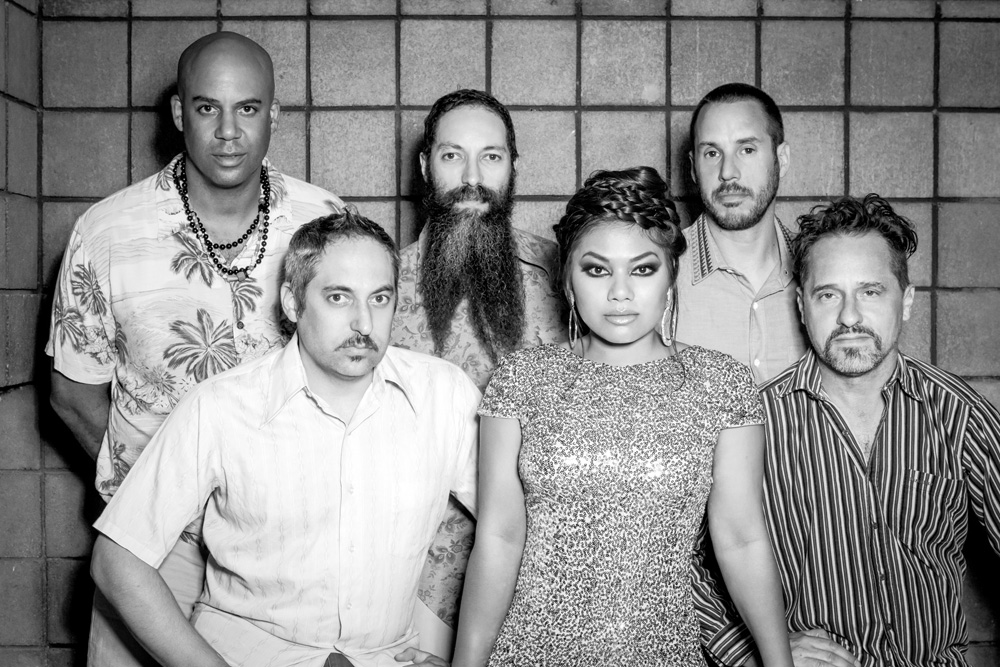The moment passes in a flash. Tokay, the first cut off Dengue Fever’s latest album, opens with a frighteningly lo-fi percussion sample that sounds like it came off a cheap Casio keyboard. The digital cliché stops your heart (and not in a good way), and for a terrifying moment you think Dengue Fever, not long ago one of LA’s finest hipster bands and Cambodia’s own post-pop musical superstars, have jumped the shark.
Then a kazoo drops in (or something that sounds like a kazoo, but maybe not an actual kazoo. Maybe that cheap Casio) backed by African-style drums and a nimble bass line. When the music pulls back and lead singer Chhom Nimol comes in, it’s like an old flame has sauntered into the room and flashed a coy smile. No sharks. No fear. Instant new crush.
So it goes with Dengue Fever, who have not released a full-length album since Cannibal Courtship in 2011. In the ensuing time the band dumped its previous record label, Fantasy, and started its own, Tuk Tuk Records, which has allowed the sextet to create and release music on its own terms.
Since debuting in 2001 as a gimmicky Khmer oldies band, Dengue Fever has continuously defied expectations. The labels – Khmer oldies, garage, world, psychedelic, surf – have never stuck.
The Deepest Lake took a year to come together, and with it the band seems to have fully assimilated its influences. No longer is Dengue Fever just an LA band with an exotic Khmer singer, or a Khmer oldies band with barang musicians. The influences on The Deepest Lake are far more diverse than anything previous. They include African and Latin rhythms, dream pop and even rap. The music defies categorisation – try as we might.
After Tokay, the seductive opening cut, the band drops into No Sudden Moves, a song about some doped-up meth heads who live across the street. The track embodies the classic Dengue Fever sound, from the driving melodies and low-end sax fills to the trademark reverb-drenched guitar licks and high-flying vocals.
The song opens with a solo bass line and an upbeat guitar-driven melody. It’s a bit quirky, and momentarily feels a bit too cute, but Chhom Nimol’s vocals soon take centre stage and pull the track back toward a middle-of-the-road indie rock groove. And then beyond.
In a first for the band, the Battambang songstress starts rapping midway through the song. It’s an unassuming shift, and she handles it so deftly that it takes a moment to fully realise that you’ve just heard Chhom Nimol spittin’ rhymes like a South Central cholita.
The third cut, Rom Say Sok, is big-hair surf rock fun reminiscent of the B-52s in their Love Shack days.
From there the album slips into a dreamy, atmospheric mood with Ghost Voice and Deepest Lake on the Planet. In the former, the band serves up a trippy, jungle rock tapestry composed with cowbells and traditional Khmer melodies, in the latter a hypnotic dream pop journey through submarine fantasies.
The English-language Cardboard Castles marks a return to arm-waving indie pop, and the song is sure to make any college kid worth his microbrew swoon.
Vacant Lot is another moody, minor-key ensemble that seems tailor made for an overdose scene in a Quentin Tarantino film. Still Waters Run Deep, a fast-paced surf rock number, could easily score the chase sequence.
The Deepest Lake closes with Taxi Dancer – a slow-grooving showcase for Nimol’s haunting vocals – and Golden Flute, a similarly inspired tune built with expressive percussions and brooding, musical textures.
If the Khmer oldies hits were the gimmick that started it all, the band, now nearly 15 years old, has certainly evolved into a mature outfit with its own distinct sound. The Deepest Lake is likely Dengue Fever’s finest album yet. And with the new evolved sound, the band seems just a little less crush-worthy, and just a little more like something suitable for a long-term affair. Hopefully, it won’t take another four years to hook up again.









